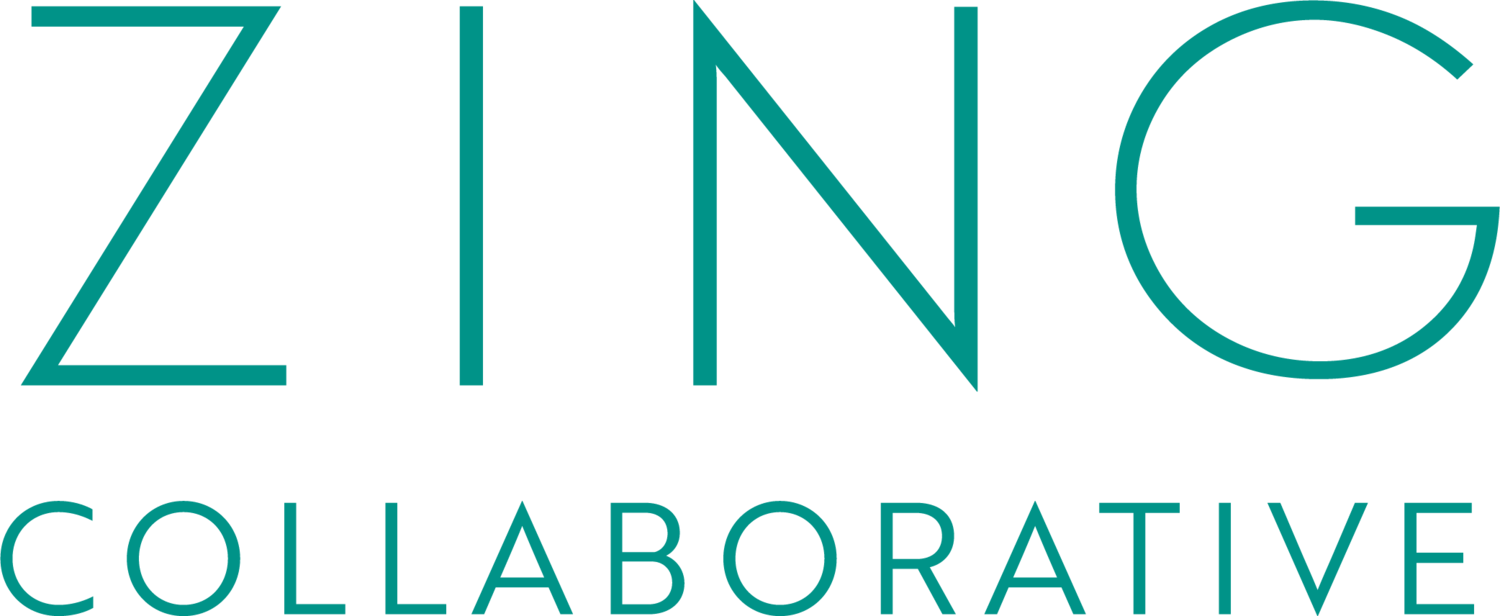BALANCING EXTERNAL FEEDBACK WITH INNER TRUTH (AKA: HOW TO RELY LESS ON OTHER PEOPLE'S OPINIONS OF US)
Feedback: The Gift and the Shadow
My love language is Words of Affirmation. This means that I feel loved through words and language. I appreciate when people share kind words from their hearts. Genuine positive feedback is meaningful to me.
I hate that this is my love language.
To me, it goes against the zen way of living, in which we take external input and feedback in a completely unattached way - a way of being in which we take nothing personally, whether good or bad.
I’m also an obliger (per Gretchen Rubin’s Four Tendencies), which means that I am more responsive to other people’s expectations than I am of my own .
A single piece of negative feedback amidst 99 pieces of positive feedback on a post-event survey can leave me reflecting for hours.
A few years ago I was teaching a course and paged through the evaluations after class. I received one comment from someone about something that he didn’t like.
I immediately started restructuring the class in my head, based on this piece of feedback. “Maybe he’s right,” I said to my colleague. “I think that we could do x, y, and z for the next time that we offer this, which would align with what he is saying.”
“Sarah,” my colleague said, “this piece of feedback does not represent a majority opinion. It does not even represent 5% of the opinion of the class. It is a single outlier.”
“Oh.”
“Yes - I suppose you’re right.”
His reminder was powerful. And this was not, unfortunately, an isolated incident.
You can see how this might be a slippery slope. Despite doing a tremendous amount of personal development work over the years, it is a continuous work in progress for me to take pieces of external feedback as input and data points, but not a whole and complete truth.
On top of these natural tendencies, I “grew up” professionally in a work environment that was big on feedback. Some within Silicon Valley have described their hiring strategy as hiring “insecure overachievers.” One could argue that our hiring strategy was similar.
For insecure overachievers, positive feedback can be the fuel that keeps the motor running - providing a place to work toward...aspirational stopping points along the metaphorical professional journey. It keeps us on our toes. It keeps us learning and growing and improving. If done well, it keeps the lines of communication open for all involved parties, and leads to continuous evolution and expansion. In short, it helps us to become better, more resilient, and more impactful team members and humans.
In a less ideal situation, it can become addictive - the thing to seek more of, a way of getting the next dopamine hit, a way to feel valued and worthy, which relies on input from somewhere outside of ourselves. An over-reliance on external feedback can lead us to lose touch with our own inner knowing. It can lead us to overlook our own truth - in favor of someone else’s.
I believe that there is a happy medium - a way of honoring the feedback that we get from others, while also honoring the feedback that we have for ourselves.
Here are a few things we can do to find the happy medium of both.
The Self-Review.
Before seeking feedback from others: do a self review.
In short, the idea is this:
We need to know how we think and feel about something before we seek out how others feel about something. That way, we can take the outside information for what it is - a piece of outside information, a bit of input - which we can choose to do whatever we want with.
The self-review involves pausing and spending a bit of time with ourselves to reflect - on the successes, the opportunities for improvement, and the things we learned - before we go forth and ask others for their perspective.
For example, this is how I use the self-review after teaching a course - something I do often, and something that is nearly always followed by a course evaluation.
After teaching a course, taking some time to reflect on the following questions:
How do I think the course went?
How do I think that I showed up as a leader?
Did I give this my all?
Was this a 100% effort?
How do I feel about the impact that I had?
And what would I do differently next time?
And then, with this information in mind, I can proceed to read the course evaluations for additional context and perspectives. While reading the evaluations, I can take what is helpful and leave the rest - coming from a grounded and steady place which was created from the self-review.
I can ask myself:
What helpful pieces of feedback can I pull out from this evaluation?
What would I like to carry forward from this evaluation, to supplement what I uncovered from my self-review?
The self-review process can be applied to anything we do throughout our work and lives. For example:
How do I think I did on the presentation?
How do I think I did as a parent today, in showing up with my kids the way I want to show up?
How do I think I did as a teacher, professor, or educator this year?
How do I think I did as a mentor or coach?
How do I think this week went at work?
You get the idea.
In short, this is an opportunity for us to get clear and grounded within ourselves, before we seek out the perspectives of others.
Then, once we have completed the self-review, we can engage with feedback from others.
Taking What is True and Helpful; Leaving the Rest
It can be tempting to take external feedback as 100% truth. Because it’s written in a course evaluation or feedback survey, it must be true.
If you’re an obliger (like I am); if you have words of affirmation as your love language (like I do); or if you have any sort of pleasing tendencies (as, once again, I do as well - ugh…), this can be even more tempting.
Here’s the thing though.
Feedback is often one person’s opinion. This opinion may or may not be valid; it may or may not be aligned with your values; and it may or may not be from someone who you most want to serve, work with, have as a client, an audience member, or a customer.
All feedback is not equal. However, when we’re reading through a course evaluation or feedback survey or culture/climate survey that we did within our organization, it can be tempting to think that it is.
Here are some questions that we can ask ourselves when we are receiving, or reading, feedback from others:
What is most helpful within this body of feedback?
What can I learn from this?
What is the 1% truth in this piece of feedback that I might largely disagree with?
What would I like to carry forward from this?
What would I like to acknowledge, and then set aside?
What feedback feels true to me?
How can I blend this feedback with what I uncovered through my self-review, in order to get the most useful information?
Doing these two things, in order, can help us to connect to our own inner truth, and also to use external feedback in a more effective way. In review, this involves first doing a self-review, and then taking what is helpful from external feedback, input, or opinions.
Related Reading and Listening:
For more related to this topic, you may enjoy the following:
How I Bomb Proofed my Self-Confidence by Melissa Urban (podcast). I first learned about the idea of a self-review from Melissa (thank you Melissa!) who I believe learned it from her therapist. In this episode she talks more about the way she uses this process and how she’s applied it to situations like her books and her writing, as well as the time she received feedback that she writes like a 5th grader.
No Ego by Cy Wakeman (book). Cy’s perspective is that all feedback is not created equally when we are doing culture/climate surveys within our organizations. She believes that we should not take feedback from our lowest performing team members at the same value as feedback from our rock stars. This, of course, is not how culture/climate surveys usually work; her perspective is worth considering.
Why Talking is Not Enough by Susan Page (book). While this book is written from the perspective of romantic relationships, it applies to many other situations as well. The idea is: instead of trying to solve all of our problems by sharing feedback with our partner; expressing the ways that we want the other person to change; and having the same conversation over and over again, we can begin to view the relationship as a spiritual practice. This has many applications at work, as well - especially for the person whose behavior drives us nuts.
The Work by Byron Katie (free resources on her website + book).
The Five Love Languages (free quiz). This quiz is helpful to understand more about how you feel loved by others. Additionally, it is very helpful to understand “misses” in relationships that stem from two people who give, and receive, love in very different ways.
The Four Tendencies (free quiz). Find out how you respond to expectations (both from others; and also your own). The Four Tendencies

